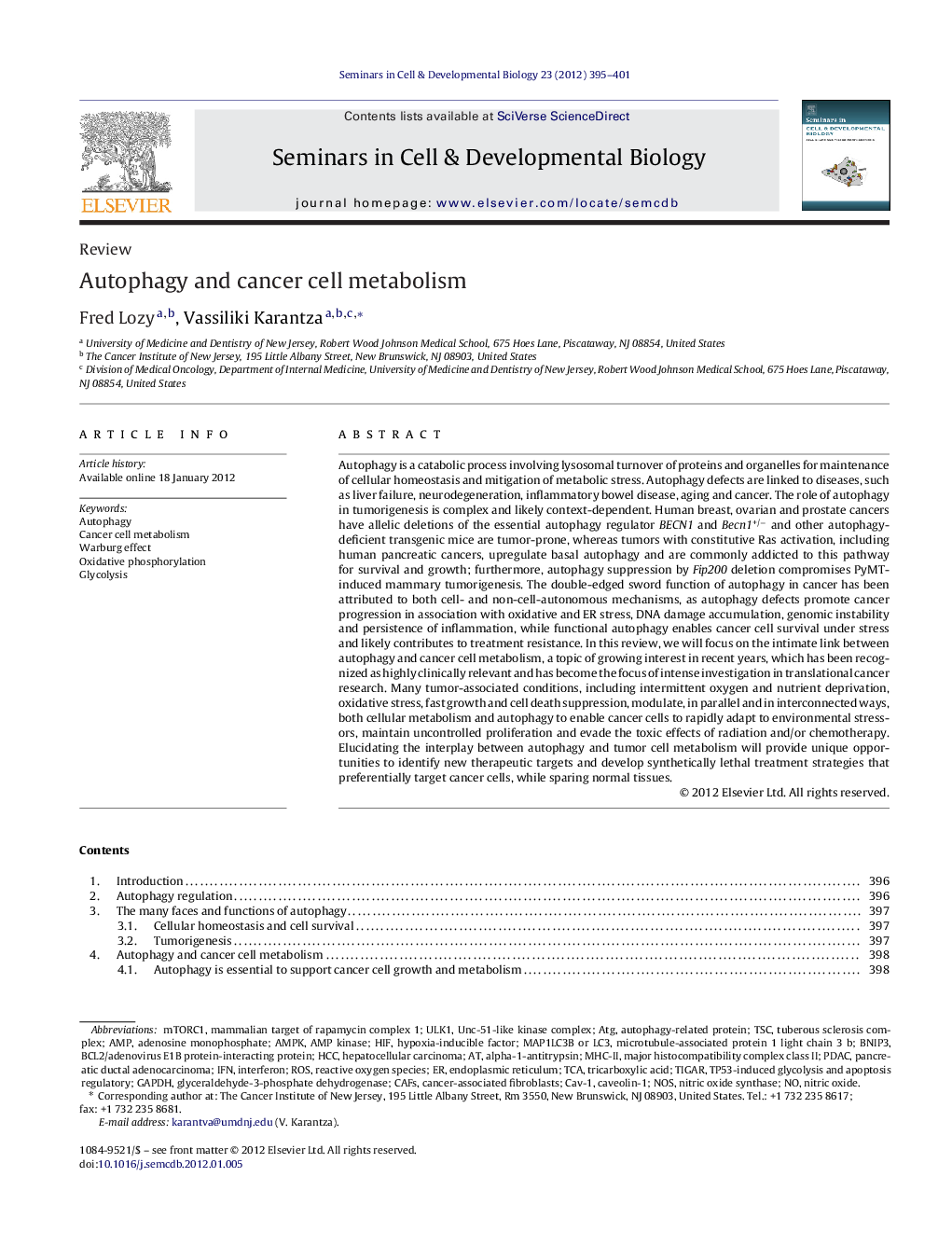| Article ID | Journal | Published Year | Pages | File Type |
|---|---|---|---|---|
| 10959226 | Seminars in Cell & Developmental Biology | 2012 | 7 Pages |
Abstract
⺠Many tumor-associated conditions, including hypoxia, nutrient deprivation, oxidative stress, fast growth and cell death suppression, modulate both cellular metabolism and autophagy. ⺠In cancer cells, metabolism and autophagy are intertwined in a continuous cycle, as altered metabolic pathways stimulate autophagy, which in turn promotes tumor cell growth and proliferation by supporting its metabolism. ⺠Elucidating the interplay between autophagy and tumor cell metabolism will provide unique opportunities to identify new therapeutic targets and develop synthetically lethal treatment strategies that preferentially target cancer cells.
Keywords
AMPKPDACAMP kinaseULK1CAFsTIGARmTORC1HIFMHC-IIBNIP3ATGNOSTSCGAPDHTCAAMPHCCROSadenosine monophosphatePancreatic ductal adenocarcinomaalpha-1-antitrypsinAutophagyWarburg effecttricarboxylic acidinterferonIFNCancer cell metabolismendoplasmic reticulumHypoxia-inducible factorOxidative phosphorylationCancer-associated fibroblastsNitric oxidenitric oxide synthaseMammalian target of rapamycin complex 1autophagy-related proteincaveolin-1Hepatocellular carcinomaCav-1Major histocompatibility complex class IITuberous sclerosis complexglyceraldehyde-3-phosphate dehydrogenaseGlycolysisReactive oxygen species
Related Topics
Life Sciences
Biochemistry, Genetics and Molecular Biology
Cell Biology
Authors
Fred Lozy, Vassiliki Karantza,
